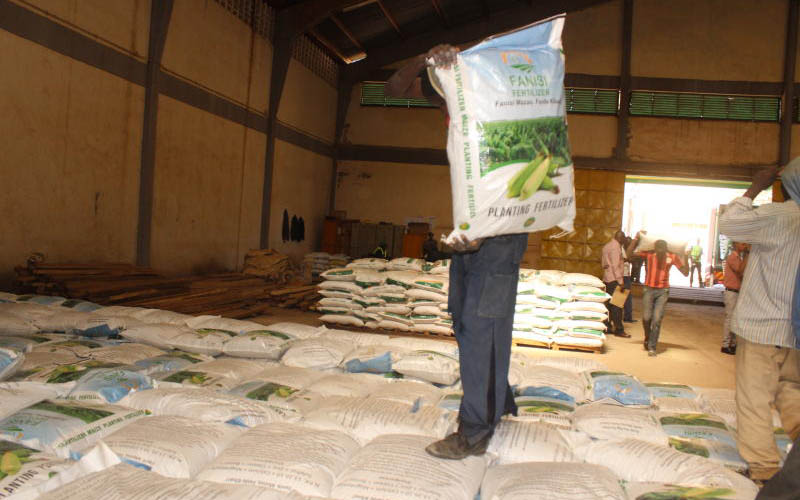Worker offloads fertilizer at Eldoret Cereals stores in Uasin Gishu County on April 4, 2022. [Christopher Kipsang, Standard]
×
The Standard e-Paper
Kenya’s Boldest Voice

Worker offloads fertilizer at Eldoret Cereals stores in Uasin Gishu County on April 4, 2022. [Christopher Kipsang, Standard]
Desperate farmers milled around the National Cereals and Produce Board’s (NCPB) silos in Kitale, Trans Nzoia County, yesterday as they scrambled to get the government-subsidised fertiliser, in vain.